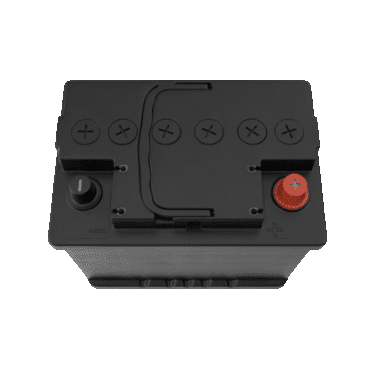

Fibres For Battery Manufacturing
Our precision short cut fibres are designed to improve performance and longevity of batteries.

Create stronger and more hard-wearing batteries
Battery fibres are widely used by battery manufacturers to create stronger and more hard-wearing batteries.
For example, polyester battery fibre is often added to ‘pasted plate’ type lead acid batteries to help with reinforcement and to offer protection from wear and tear. Goonvean fibres provide fibres for a range of battery applications including AGM battery fibres, EFB battery fibres and BiPOLAR battery fibres.
Polyester and polypropylene battery fibres are extremely useful for reinforcing batteries as the fibres are resistant to chemical solvents, bases, and high strength acids. This means that they are less likely to be dissolved by acid or general use over time, making your battery product superior to those which break down quickly.

RIGOROUSLY TESTED FOR THE BEST RESULTS
Tests which involve vigorous vibration of the plates mimicking general use, normal road conditions, and potential impacts have shown that cut fibre-reinforced batteries last much longer than others.
In fact, plates without fibre were shown to lose an average of 35% of their active material, whereas plates reinforced with Goonvean Fibres’ standard polymeric fibres lost less than 1%.

Find the right product for your battery
Please use the configurator below so we can recommend a product based on the pasting machine you currently use.
Battery Fibre Technical Details
All of our precision cut fibres that are available to the lead acid battery industry are thermally stable, and acid resistant. They are also easily dispersed in powders and/or liquids, and contain trace levels (ppm) of heavy metals.
Polyester is an extremely strong, resilient, and stable man made fibre that is commonly used in a wide variety of industries. It is popular with battery manufacturers because it doesn’t stretch or shrink and it is very resistant to abrasion and acid degradation. Polyester has a relatively high specific gravity, meaning that it disperses very well in water, and a relatively high melting point, meaning that it is heat resistant.
Sizes: 2.10 decitex and 3.30 decitex
Polypropylene (PP) is a thermoplastic polymer used in a wide variety of applications including packaging, textiles and automotive components. It is rugged and unusually resistant to many chemical solvents, bases, and acids making it an ideal material for use in lead acid batteries.
Sizes: 3.30 decitex
Some applications require a more technical and higher-grade fibre. One example of this is batteries with high DCA (Dynamic Charge Acceptance) demands and harsh thermal conditions that are often used in military, electric vehicle, and aerospace sectors.
Batteries with a high DCA have been developed for use in hybrid, plug-in hybrid, fuel cell, and electric vehicles. They require a short cut fibre that is resilient and resistant to harsh conditions including acid and high temperature.
Our technical fibres include:
Thermafloc+ is an excellent choice for those who want high thermal stability and low shrinkage. Thermafloc+ is specifically engineered for AGM battery manufacturers and is able to increase thermal stability by 28% and reduce shrinkage by 82% when compared to standard polymeric fibres.
Sizes: 2.10 decitex
Primafloc+ has been shown to improve and reverse the negative effect caused by the inert polymer fibre, a limiting factor in dosage rates. It is also able to reduce water loss by up to 50% over 21 days when compared to a typical polymeric fibre.
Sizes: 3.3 decitex
Short cut GVFloc+L has shown very positive results in improving the stability of the electrodes within a lithium ion battery, thus improving the batteries ability to harness the high energy density potential.
Sizes: 3.30 decitex
